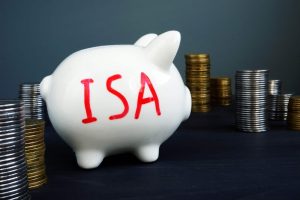Are Nvidia shares going to crash?


Nvidia (NASDAQ: NVDA) shares can’t seem to stop defying gravity. The share price is up 94% since April. Anyone who caught the bottom while the Liberation Day panic was in full swing would have doubled their money over the summer.
The now-largest company in the world by market cap has ballooned to $4.5trn on the back of massive investment into artificial intelligence, but those very same AI applications aren’t generating all that much revenue just yet.
This has led some to question whether we might be in the middle of a bubble similar to that of the Dotcom Crash in 2000. Are we in a bubble? Are Nvidia shares going to crash? Let’s explore.
A sustained drop
The quick and dirty answer is: yes, probably. Much like the extremely volatile Tesla, Nvidia stock attracts numerous speculators, some might call gamblers, which makes the share price resemble a yo-yo.
Day-to-day shifts of more market cap than the biggest FTSE 100 companies are seemingly de rigueur. A drop of 20%, usually considered the smallest amount to be called a crash, would hardly be out of the ordinary. In fact, a 36% drop already happened this year on the back of the Trump tariffs.
What Iâm really interested in then is not merely a crash, but a sustained drop. Could Nvidia shares be in for a two-, five- (or longer) year run of miserly returns?
I don’t have zero crystal ball, but I donât see such a future as farfetched. Spending on AI in 2025 is estimated to be over $300bn. How much could the return on all that investment be? I asked Gemini (Googleâs LLM) and it mentioned the market by 2030 could be as little as $35bn. Those numbers donât add up to me.Â
Worse, Gemini and every other AI model still hallucinate so I canât even trust the answer. Will their answers ever be 100% reliable? I donât think we have an answer for that either. Itâs hard not to draw comparisons to the Dotcom Boom where hype over technology led to astronomical valuations. Until they came back down to earth, that is.
The long run
Amaraâs Rule can help us here. For the unaware, Amaraâs Rule states: âWe tend to overestimate the effect of a technology in the short run and underestimate the effect in the long run.â
In other words, people see shiny new things and get excited, but it takes longer than they think for those shiny new things to have serious effect.
It was true for the internet. Amazon stock plummeted during the Dotcom Crash in 2000. A quarter century on and the stock is up hundreds of times and Amazon is one of the biggest companies in the world. Nvidia may follow a similar pattern even if the shares crash.
This approach dovetails nicely with one of the core tenets of the Motley Fool investing mindset: buy shares for the long term. Personally though, I see too much risk at the moment to invest myself.
The post Are Nvidia shares going to crash? appeared first on The Motley Fool UK.
Should you invest £1,000 in Rolls Royce right now?
When investing expert Mark Rogers has a stock tip, it can pay to listen. After all, the flagship Motley Fool Share Advisor newsletter he has run for nearly a decade has provided thousands of paying members with top stock recommendations from the UK and US markets.
And right now, Mark thinks there are 6 standout stocks that investors should consider buying. Want to see if Rolls Royce made the list?
More reading
- AI wars: is the Nvidia share price under threat from rival AMD?
- Here’s what the new 15% sales tax could mean for Nvidia stock
- Up 72% in a year! Too late to snap up Nvidia stock?
- Here are the latest share price forecasts for Amazon, Nvidia, and Alphabet
- Why the Nvidia share price jumped almost 10% in July
John Fieldsend has no position in any of the shares mentioned. The Motley Fool UK has recommended Nvidia. Views expressed on the companies mentioned in this article are those of the writer and therefore may differ from the official recommendations we make in our subscription services such as Share Advisor, Hidden Winners and Pro. Here at The Motley Fool we believe that considering a diverse range of insights makes us better investors.







